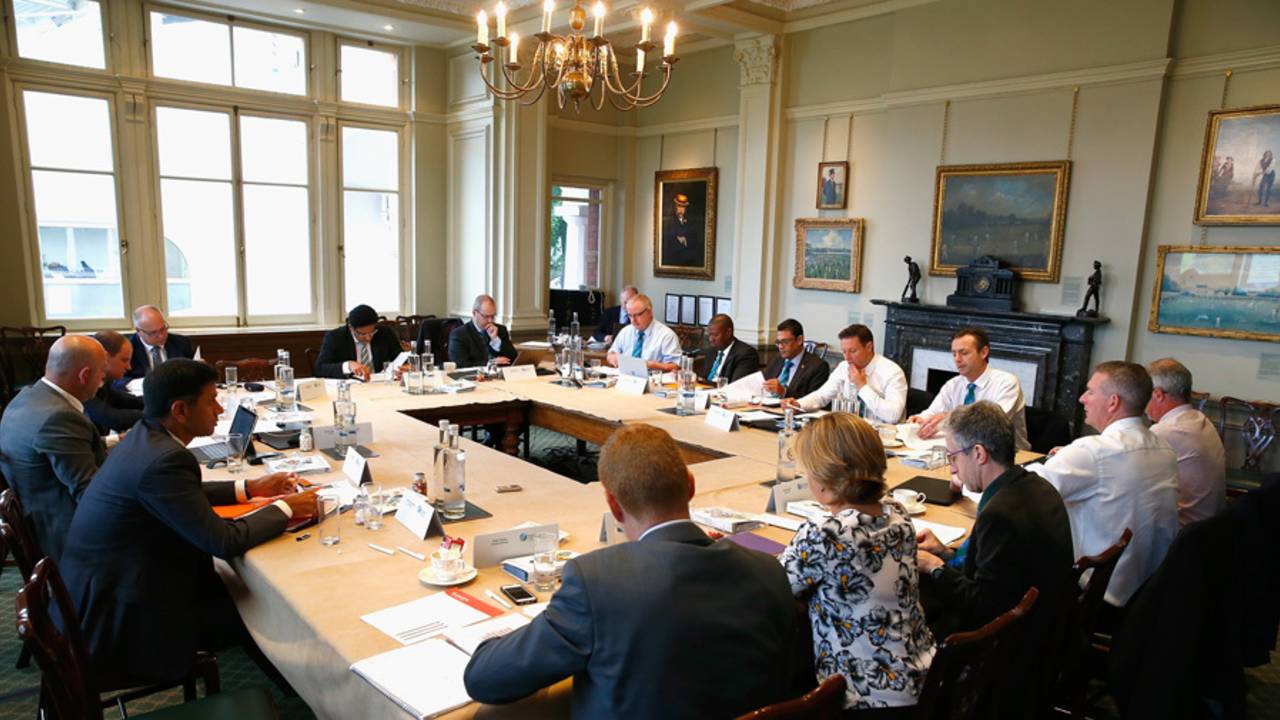Having already announced a
review of the radical reforms put in place by the Big Three, the ICC Board will this week deliberate on adopting a
model of governance close to that recommended by Lord Woolf in 2012.
A five-man working group, led by ICC chairman
Shashank Manohar, appointed to carry out the constitutional review of the Big Three reforms has received feedback from both Full Members and Associate Members and most of the suggestions point to the measures recommended in the Woolf Report, which the ICC had opted to ignore under the leadership of its previous chairman N Srinivasan.
However, Manohar, the ICC's first independent chairman, had spoken of
decentralising the power base of the organisation and making it more accountable.
The following are some of the suggestions the Board will deliberate during the ICC Annual Conference in Edinburgh:
In a paper on "Governance", distributed to all members, and seen by ESPNcricinfo, one common theme was that the ICC should become "a body with the power and authority to oversee, guide, and with the support of its members, govern cricket worldwide." The Woolf Report had categorically said "the game is too big and globally important" to permit continuation of Full Members, making it a members only club, and recommended that the ICC's role as leader of the international game needed to be "reinforced and confirmed by all."
Another critical change suggested to the ICC working group was the removal of the clause that allows only countries with Test status to be Full Members. "Remove requirements to play Test cricket as condition to Full Membership," some members suggested. The paper also listed the recommendation of the Woolf Report on the issue, which said, "mandatory Test-playing status should not be a requirement of FM status. FM class should include Test playing Members together with other high performing [but not Test-playing] Members."
The members also asked for a clear definition of Full Membership, whether entitlements like voting rights, funding and nominations on the ICC were evaluated on a report card-based system, or performance rankings or through a competition.
The ICC Board was also asked to consider another of Lord Woolf's suggestions, on reconstituting the Board itself and expanding to "not more than 15" members. The Woolf Report had suggested the ideal composition of the ICC Board to be: four directors representing Full Members, two directors representing Associate Members, three independent directors, two independent diversity directors, the ICC president and CEO.
The members also recommend that the two powerful committees - finance and commercial affairs (F&CA) and ExCo - should not appoint their own chairman, and that the appointment needed to be done by ICC Board. Another suggestion, which was listed in the Woolf Report and put forward again, was that ICC committees should reserve a spot for independent directors not affiliated with Full Members or Associate Members wherever possible.
Associates and Affiliates wanted bigger representation on various committees, and also suggested the publication of minutes from ICC Board meetings on the governing body's website.
